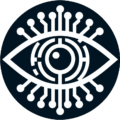Technology: A Means to an End, Not the End Itself
In the buzz of silicon dreams and digital revolutions, it’s easy to forget that for most people, technology isn’t a grand passion or a cutting-edge career—it’s simply a tool. Like a well-worn hammer or a reliable pair of scissors, technology often fades into the background of our daily lives, quietly enabling our tasks without fanfare.
Picture the dawn of a typical day. An alarm chirps from a smartphone, jolting millions into consciousness. Few ponder the intricate circuitry or marvel at the software algorithms that ensured this punctual awakening. Instead, bleary-eyed individuals fumble for the ‘snooze’ button, their minds already racing ahead to the day’s obligations.
The Invisible Backbone
Technology’s true power lies in its ability to become invisible. The office worker tapping away at their keyboard isn’t swooning over the latest processor upgrades; they’re focused on meeting deadlines and crafting persuasive presentations. In homes across the globe, smart thermostats quietly adjust temperatures, their complex algorithms unnoticed by the comfortable inhabitants.
This ubiquity and invisibility of technology isn’t a failure—it’s a resounding success. The best tools are those we hardly notice, seamlessly integrating into our routines and enhancing our capabilities without demanding constant attention or adoration.
The Myth of Universal Tech Enthusiasm
Silicon Valley’s pulsing energy and the media’s breathless coverage of each new gadget can create a skewed perception. It’s easy to assume that everyone should be as excited about the latest blockchain implementation or AI breakthrough as the tech enthusiasts are. But this expectation is as unrealistic as assuming everyone should be passionate about the internal combustion engine just because they drive a car.
In schools, the push for universal coding education often stems from this misconception. While digital literacy is crucial, not every student needs to become a programmer. Instead, education should focus on teaching effective use of technology as a means to achieve diverse goals, be they artistic, scientific, or humanitarian.
The Craftsmen of the Digital Age
None of this diminishes the importance of technology professionals. These digital artisans craft the tools that power our modern world. Their passion and expertise drive innovation, solving complex problems and opening new frontiers. But it’s crucial to recognize that their relationship with technology is the exception, not the norm.
Consider the analogy of a master carpenter. Their profound understanding of wood grains, joinery techniques, and tool maintenance is essential for creating beautiful furniture. However, we don’t expect every person who sits in a chair to share this depth of knowledge or passion for woodworking.
Navigating the Digital Deluge
Understanding technology as a tool rather than an end in itself helps us maintain a healthier relationship with our devices and software. It allows us to step back and critically evaluate which technologies truly enrich our lives and which might be unnecessary distractions.
Social media platforms illustrate this principle perfectly. Designed as tools for connection, they can easily morph into attention-hungry beasts that devour our time and mental energy. By viewing them as means to an end—staying in touch with loved ones or networking professionally—we can use them more intentionally and set appropriate boundaries.
The Human-Centric Approach
Embracing technology’s role as a tool shifts our focus to what truly matters: the human experiences and achievements it enables. This perspective can guide more thoughtful technology adoption, both personally and societally. Rather than chasing every fleeting tech trend, we can prioritize innovations that genuinely improve our lives, work, and communities.
In the grand theater of life, technology isn’t the star—it’s the stagehand. It works behind the scenes, enabling us to perform better, connect more easily, and solve problems more efficiently. The most profound impact of technology isn’t in its circuitry or code, but in how it empowers us to achieve our goals and improve our lives.
As we navigate our increasingly digital world, let’s appreciate technology for what it truly is—a remarkable set of tools that, when used wisely, can help us build a better future. After all, it’s not the hammer that builds the house, but the vision, skill, and purpose of those who wield it.


